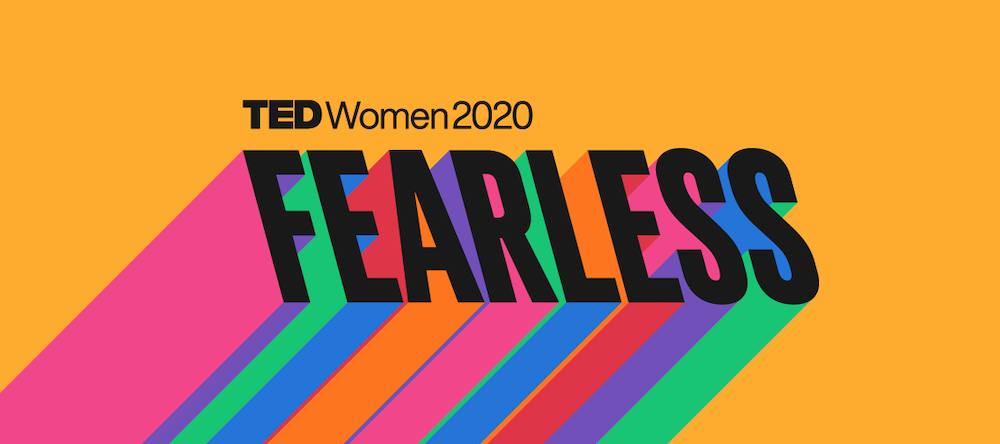
Diversity of ideas is more important now than ever. Session 2 of TEDWomen 2020 — hosted by poet Aja Monet, who gave a dazzling talk at TEDWomen 2018 — featured a dynamic range of talks and performances from some of the world’s most extraordinary risk-takers and innovators.
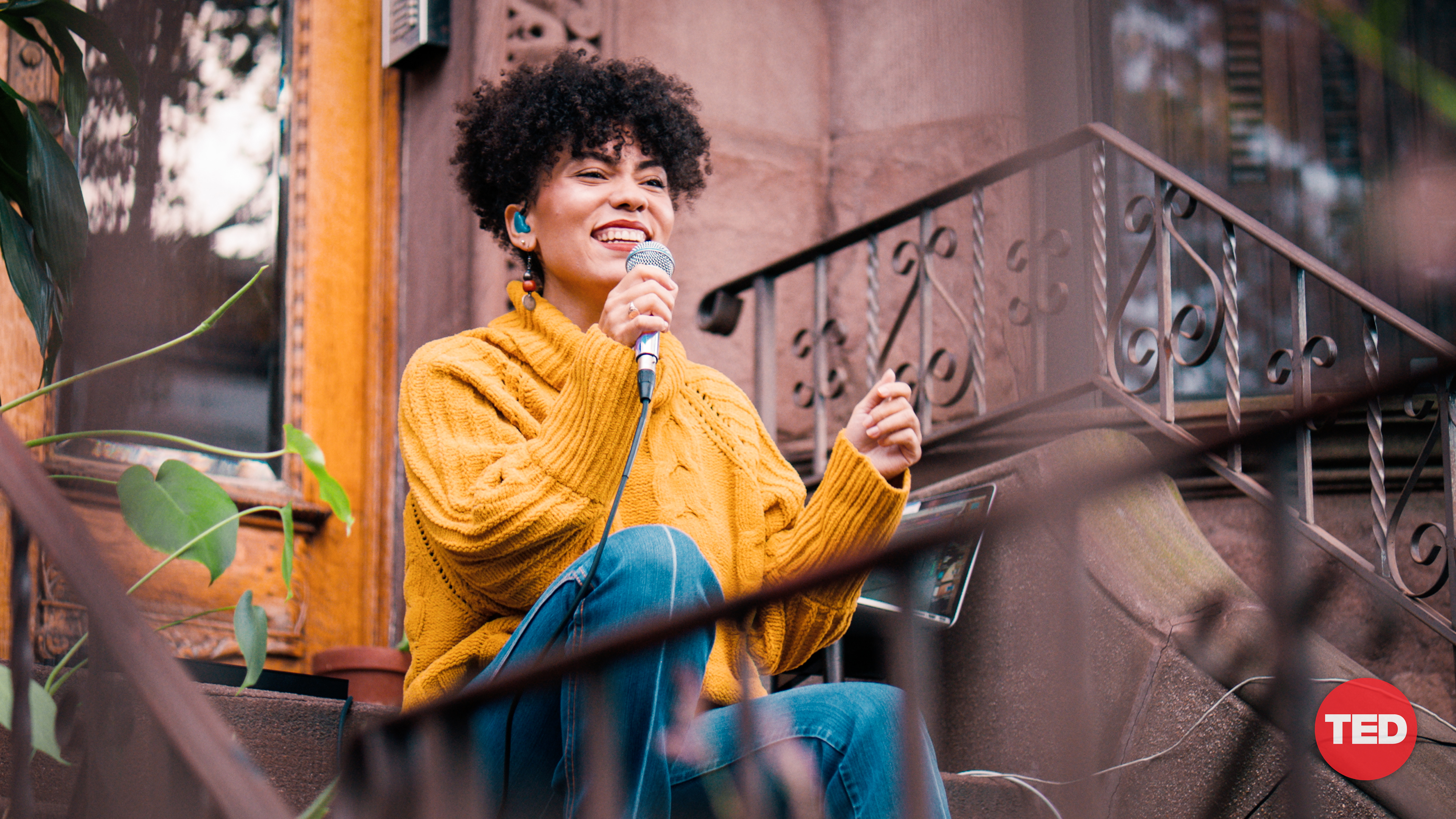
Singer-songwriter Madison McFerrin performs “TRY” at TEDWomen 2020 on November 12, 2020. (Photo courtesy of TED)
Music: From the stoop of her brownstone, singer-songwriter Madison McFerrin performs “TRY” — a synth-infused invitation to be your best self.
Special appearances: Mercy Akamo, organizer of TEDxLagos, and Keita Demming, organizer of TEDxPortofSpain, introduce this session’s TEDx speakers, part of a global collaboration between the TEDWomen team and an incredible group of TEDx organizers.
The session in brief:
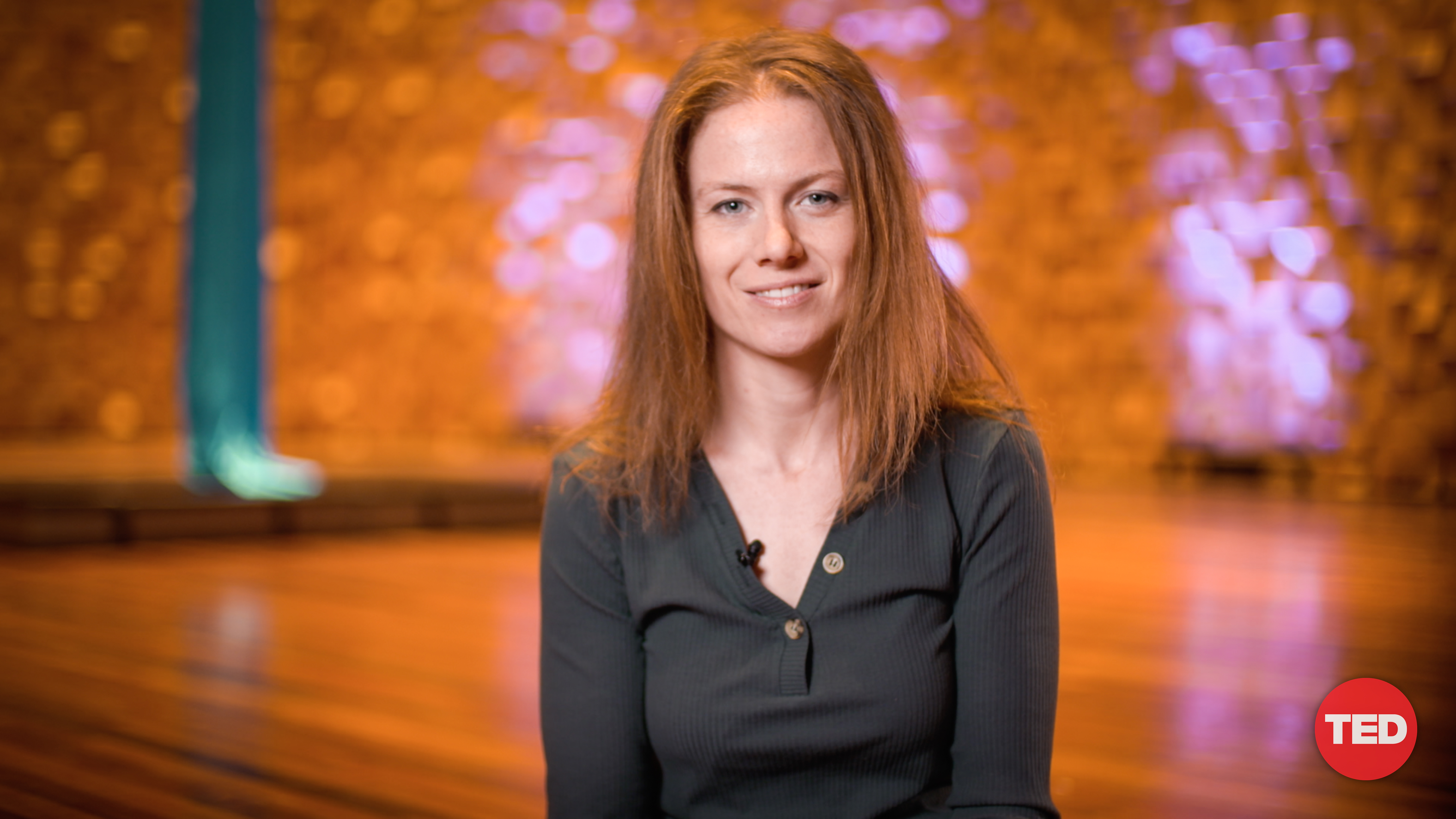
Adie Delaney talks about the importance of broadening our definition of consent at TEDWomen 2020 on November 12, 2020. (Photo courtesy of TED)
Adie Delaney, circus performer and sexual harm prevention educator
Big idea: We need to broaden our definition of consent: it is not a box to check off but an active dialogue that centers trust, communication and care.
How? In her role as a circus instructor, Adie Delaney teaches students how to listen to and trust their bodies, and how to communicate when they’re no longer comfortable. She quickly realized that she wasn’t just teaching children how to balance on a trapeze — she was also passing along vital lessons on consent. In addition to her circus career, Delaney works with teenagers on sexual harm prevention, helping them better understand how to practice consent. It’s vital that we integrate asking for and giving consent into our daily lives, whether or not it’s in an intimate setting, Delaney says. Whenever we are interacting with the bodies of others, we need to be sure everyone involved is safe and comfortable. By ensuring young people have the framework and language to clearly communicate their needs around their bodies, we can help them better care for themselves and each other.
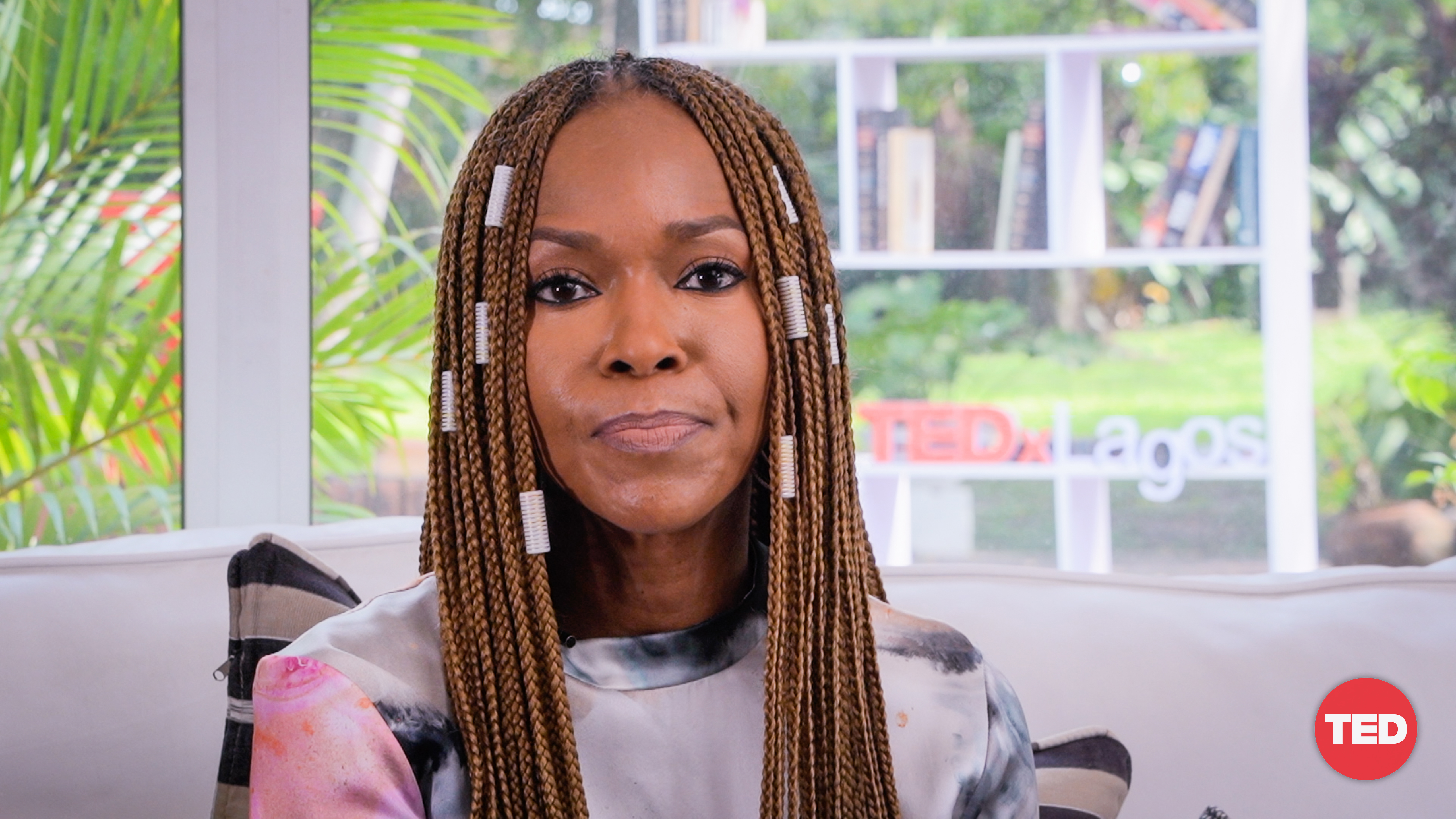
Kemi DaSilva-Ibru discusses an effort to mobilize first responders to help people facing domestic violence during the pandemic. She speaks at TEDWomen 2020 on November 12, 2020. (Photo courtesy of TED)
Kemi DaSilva-Ibru, obstetrician and gynecologist
Big idea: Everybody has the right to live in a society free from gender-based violence — and communities can help.
How? The mandatory lockdowns, quarantines and shelter-in-place orders that have confined people to their homes since the beginning of the COVID-19 crisis have placed some in another unsafe situation, prompting a shadow pandemic of domestic abuse worldwide. In Nigeria, the situation prompted the federal government to declare a state of emergency on rape. Dr. Kemi DaSilva-Ibru, founder of the Women at Risk International Foundation, which assists Nigerians facing gender-based violence, speaks from her home in Lagos on how the country is responding to this second crisis. More than 1,000 basic health care providers who service remote areas are being retrained as first responders to help in domestic violence situations, she says. These community-based men and women perform house visits, allowing people to share their stories and receive the medical care and support they need. To reach even more people, the program will soon train local police and religious leaders who have close ties to the community, providing even more accessible help and resources.
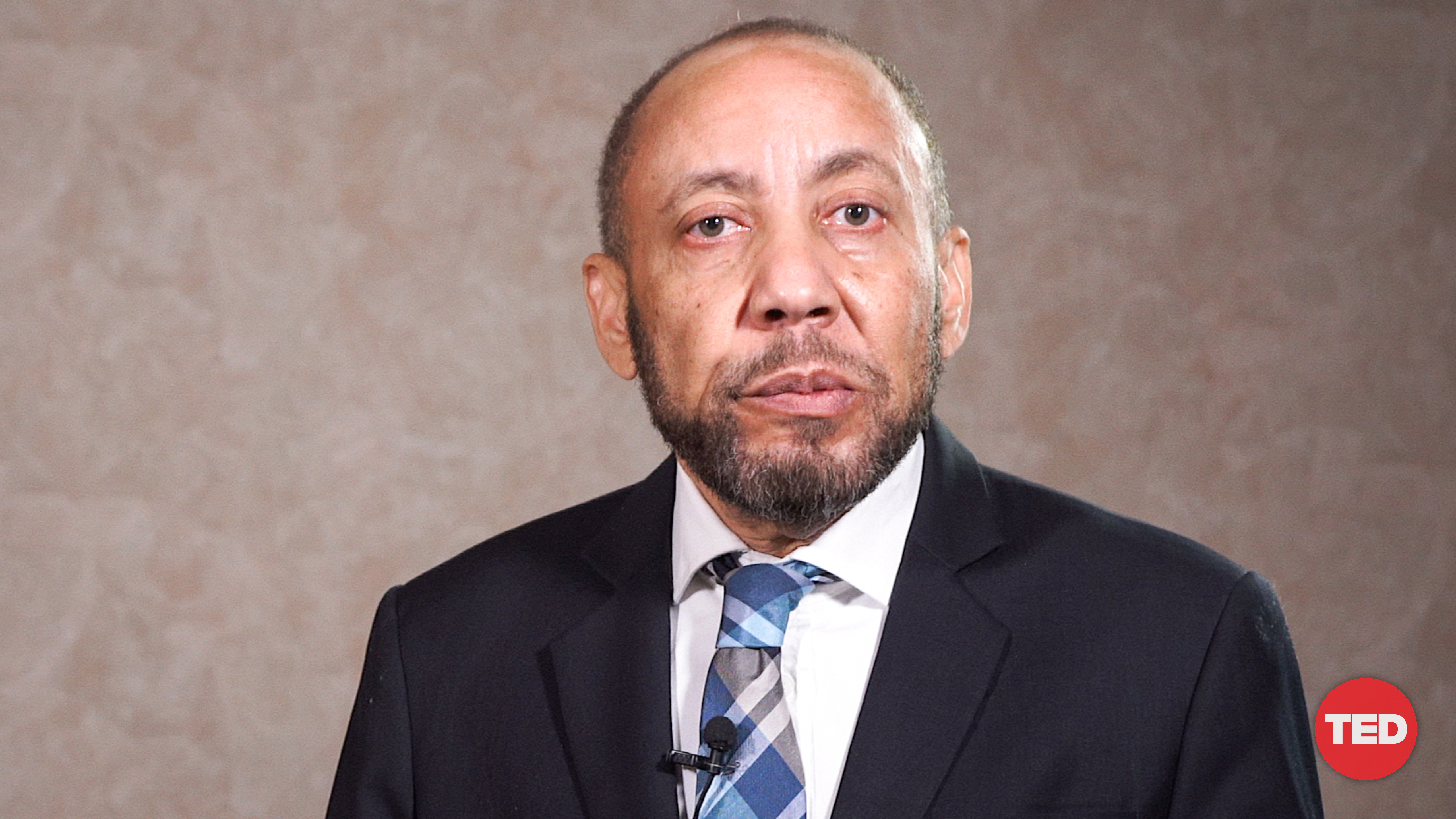
“We all play a part in treating people well regardless of biases,” says defense attorney Kylar W. Broadus. “Let’s advocate for each other by modeling respect.” He speaks at TEDWomen 2020 on November 12, 2020. (Photo courtesy of TED)
Kylar W. Broadus, defense attorney
Big idea: See beyond bias and stereotypes and treat people as the human beings they are.
How? For 25 years, Kylar W. Broadus has witnessed both conscious and unconscious bias inhibit justice in the courtroom — a pattern, well documented throughout history, of skin color and identity dictating harsher, lengthier punishments. To effectively dismantle this bias, Broadus believes a gentle yet consistent nudge in the right direction makes a stronger impression in encouraging people to uphold the shared humanity of others. He practices this subtle signaling in his own work, as the bridge between the client and courtroom, by modeling the behavior he wants the court to mirror — and succeeding. All people live with biases, but if we’re ever going to change society for the better, then we must pivot toward respect and see each other for the content of our character and the humanity we share.
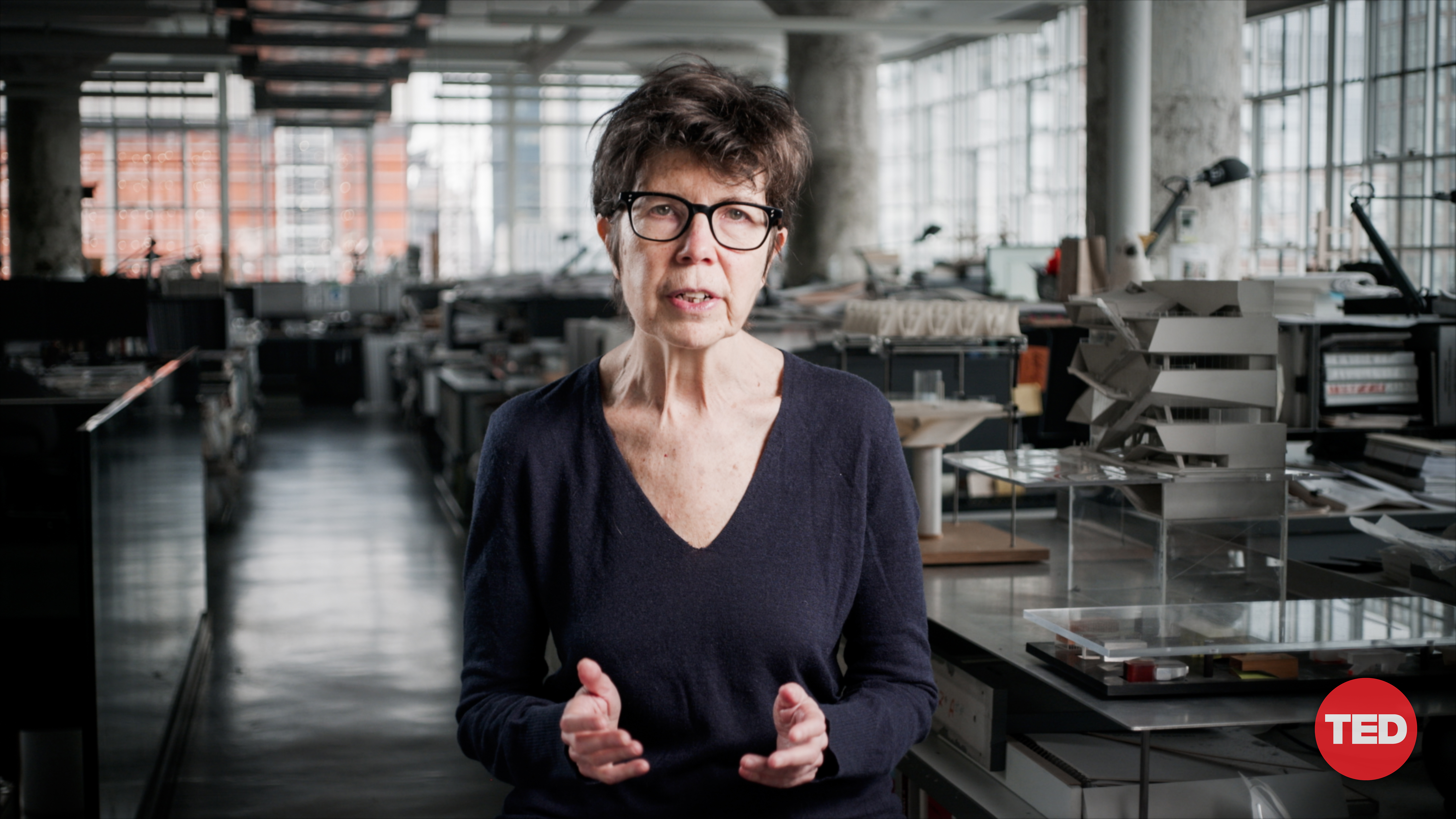
“Public space must be as free and abundant as the air we breathe,” says architect Elizabeth Diller. She speaks at TEDWomen 2020 on November 12, 2020. (Photo courtesy of TED)
Elizabeth Diller, architect, artist, designer
Big idea: Public space must be as free and abundant as the air we breathe.
Why? Our cities are becoming progressively privatized: commercial building projects and real estate dominate the streets, squeezing out space that once belonged to society at large. Elizabeth Diller says that architects must staunchly defend, advocate for and reclaim this public space, serving as a kind of creative protector against urban privatization, neglect and lack of vision. For her part, Diller helped convert a derelict railroad in New York City into the High Line, a stunning, elevated public park that is both a “portal into the city’s subconscious” and a landmark on the world tourism map. She likewise helped design a park in central Moscow — beating out plans for a giant commercial development — that has since become a bastion of civic expression and a home to social reform against a repressive regime. Now, she encourages other architects, artists and citizens to join in on this work subversively to (re)empower the public. As she puts it: “[We must] relentlessly advocate for a democratic public realm so dwindling urban space is not forfeited to the highest bidder.”
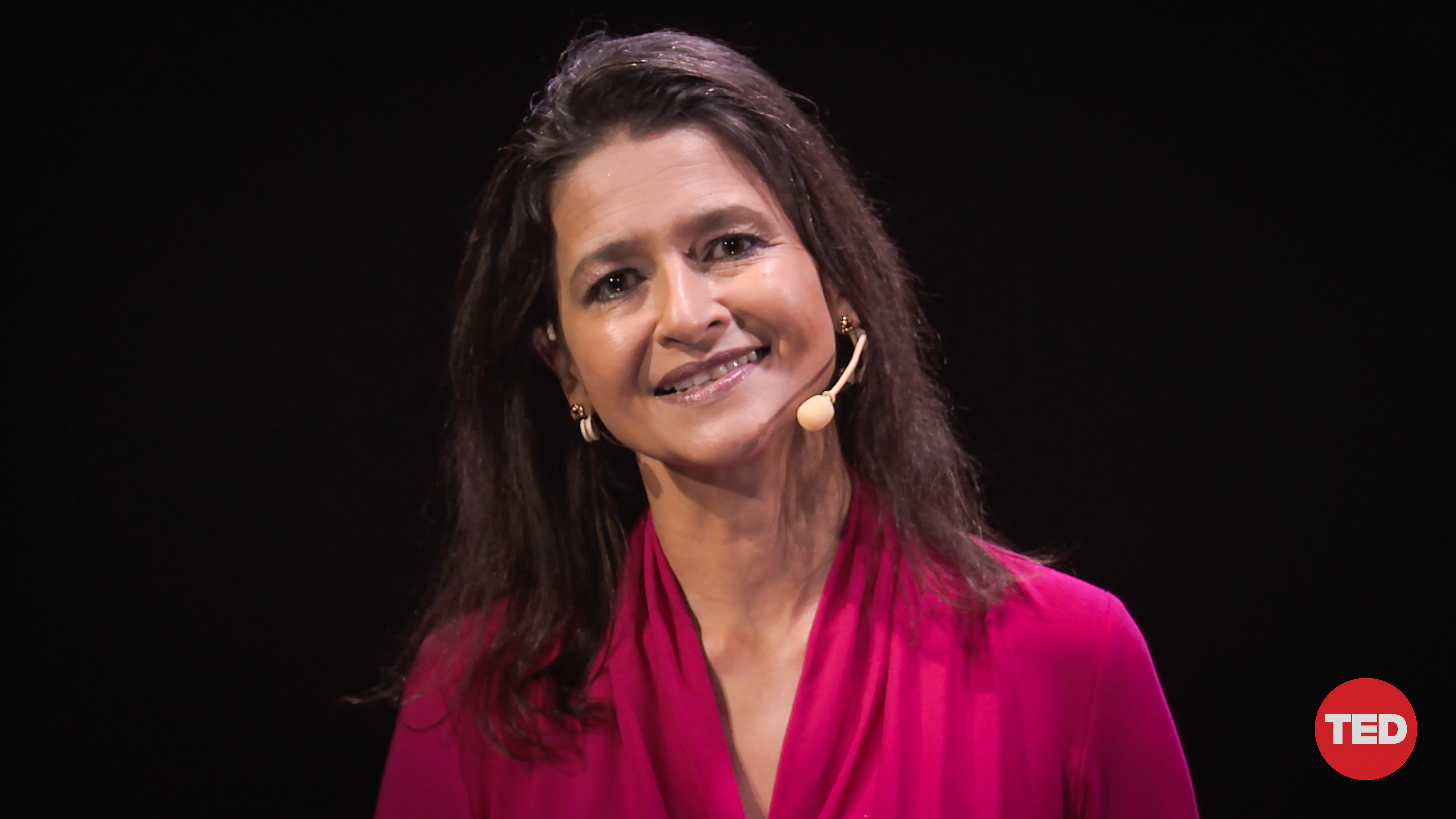
Are you an “upstander”? Angélique Parisot-Potter discusses how to stand up to wrongdoing at work at TEDWomen 2020 on November 12, 2020. (Photo courtesy of TED)
Angélique Parisot-Potter, legal and business integrity leader
Big idea: Be an “upstander”: someone who doesn’t shy away from difficult moments and discussions.
How? As a consultant who helps brands build integrity by rooting out the “open secrets” that corrode workplace ethics, Angélique Parisot-Potter is used to overturning the wrong stones. But sometimes in the pursuit of doing the right thing, she has overturned one stone too many — and found herself at odds with powerful adversaries and ostracized by colleagues. How does one stand up to bad actors (and those who let them get away with their subterfuge), even in the face of threats, coercion and isolation? The most important thing to be, says Parisot-Potter, is an upstander: someone who doesn’t shy away from dark corners and instead exposes them to the light. Although this path is difficult, the rewards — like being able to face one’s self in the mirror every day — are as rich as they are intangible. Becoming an upstander is simple: when you see something wrong, don’t second guess yourself and instead ask the difficult questions no one else is asking. Most importantly, don’t be complicit — you always have the power to say “enough is enough.”
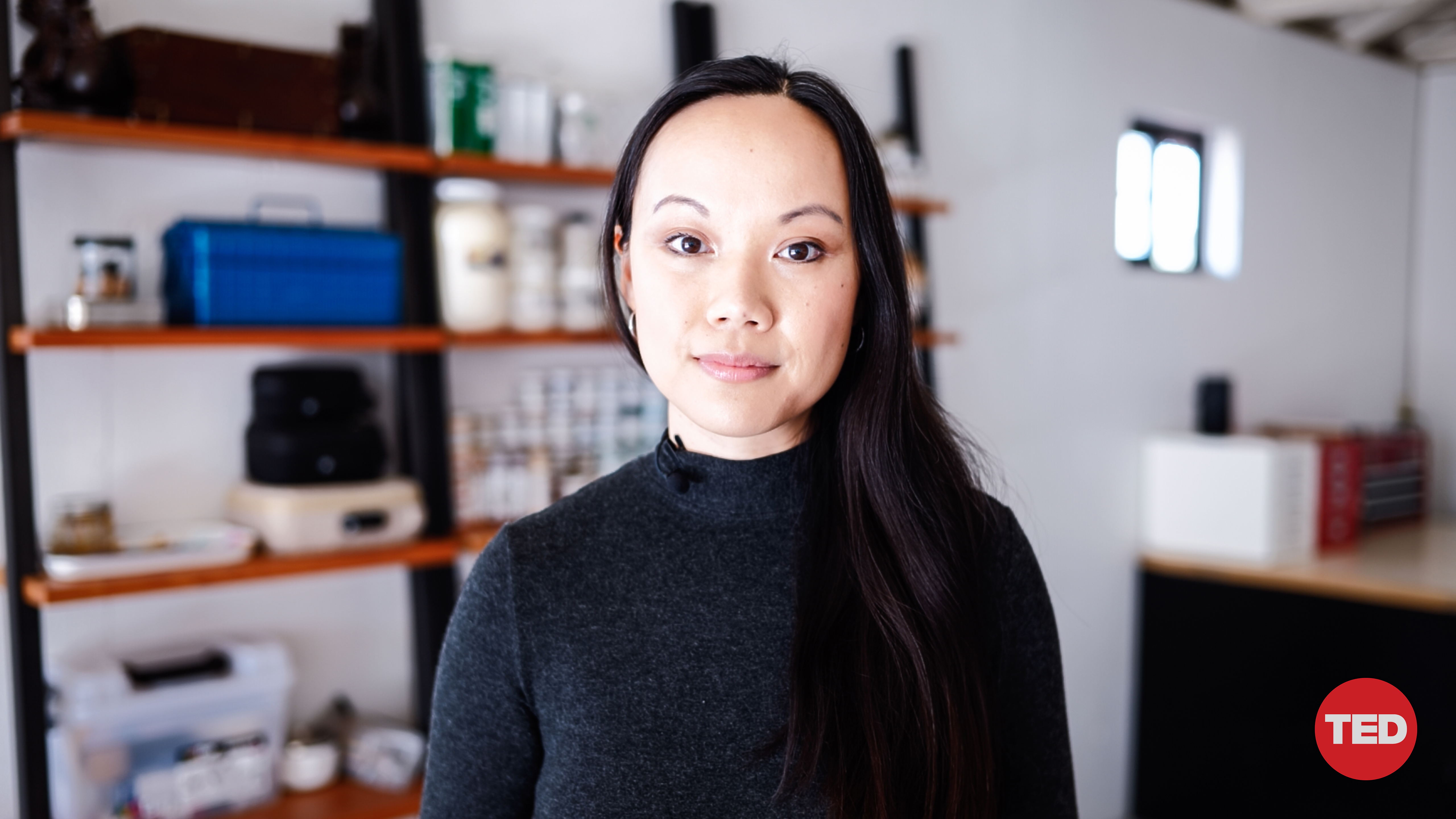
“Don’t be afraid to trust and be yourself completely,” says Tracy Young, speaking on the topic of leadership at TEDWomen 2020 on November 12, 2020. (Photo courtesy of TED)
Tracy Young, builder
Big idea: Don’t be afraid to show up to work as your complete, raw self.
Why? Tracy Young cofounded a start-up in 2011, serving as the company’s CEO as it grew from five employees to 450. Along the way, she recalls worrying that employees and investors would value male leaders more, and that being a woman might compromise her position as CEO. Partly for that reason, she continued coming into work through the later months of her pregnancy, and was quick to return just six weeks after giving birth. She also shares the heart-rending story of having a miscarriage at work during her second pregnancy, and returning to a meeting as though nothing had happened. Now, she realizes her womanhood is nothing to be ashamed of: she shares the full range of her emotions at work, leading more authentically and actively asking her team for help. This has fundamentally changed how they build and problem solve together, she says, creating a work culture that is more close-knit and efficient. To her fellow leaders out there, Young’s advice is: “Don’t be afraid to trust and be yourself completely.”
from TED Blog https://blog.ted.com/raise-your-voice-notes-from-session-2-of-tedwomen-2020/
via Sol Danmeri
No comments:
Post a Comment